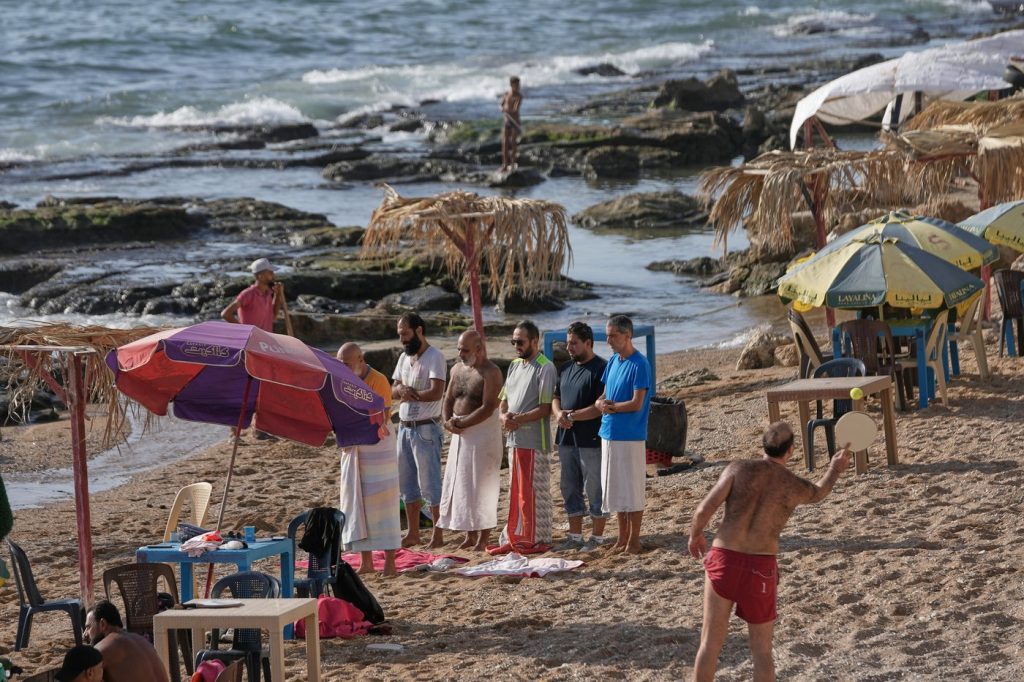World
Minorities Struggle for Representation in Syria’s New Parliament

Syria’s recent parliamentary elections have highlighted the challenges faced by the country’s minority communities as they navigate a changing political landscape. Despite hopes for greater representation, preliminary results indicate that few candidates from these groups succeeded in securing seats during the elections held over the weekend.
Political Landscape Post-Assad
The elections marked the first significant political event following the ousting of former President Bashar Assad in December 2023. Latakia, a coastal city historically aligned with the Assad regime and home to many Alawites, has become a focal point for minority participation in the new political order. Alawites, an offshoot of Shiite Islam, have seen their influence wane significantly since Assad’s fall, with many former government employees purged from positions of authority.
In the lead-up to the elections, divisions among Syria’s minority groups became evident. Some candidates, like Reem Kahila, a young Alawite pharmacist, chose to participate in the elections, believing it essential to represent their community. “In the end, we are a component among the components of Syria,” she stated at a polling station in Latakia.
Others, such as Nasser Said, a former opposition activist who spent 14 years in prison, faced backlash from their own communities for running. Despite the risks, including the assassination of fellow Alawite candidate Haydar Shaheen days before the vote, Said remained resolute. “I want to work with all our brothers in Syria to establish a social contract to build a state,” he declared.
Challenges for Minority Candidates
The atmosphere surrounding the elections was fraught with tension. Adham al-Qaq, a Druze candidate from the Damascus suburb of Jaramana, faced criticism for his decision to run. Many in his community viewed participation as a betrayal, particularly in light of recent violence in the southern province of Sweida, where government forces appeared to side with local Bedouin clans in clashes that left hundreds of Druze civilians dead.
Al-Qaq, who returned to Syria after living in exile, emphasized the need for the Druze community to engage in state-building efforts. “We must contribute in one way or another to building the state,” he said, despite pressure to withdraw his candidacy.
In a parallel narrative, Marwan Zaghib, a Christian candidate from Jaramana, expressed skepticism about the integrity of the electoral process. He pointed out that two-thirds of the parliamentary seats were filled via electoral colleges, with the remaining one-third appointed by interim President Ahmad al-Sharaa. “Sunday’s vote was not something you could call real elections,” he commented, suggesting that while the process was flawed, involvement was preferable to apathy.
Candidates from the Kurdish community also faced a complex situation. The area of Afrin, which was seized by Turkish forces in 2018, saw Kurdish candidates like Rankin Abdo attempt to improve living conditions through participation. “Boycotting the centers of decision-making… doesn’t bring any results,” Abdo stated, advocating for dialogue over armed conflict.
As the votes were tallied, the results indicated a continuation of the status quo. All three seats in Latakia city were won by Sunni candidates, while Druze and Christian candidates from Jaramana were unable to secure any representation. Nationwide, only a handful of women and minority candidates managed to win seats.
In the aftermath, Jamal Mkaiss, one of the winning candidates in Latakia, pledged to advocate for all marginalized communities. “We are one,” he asserted, aiming to unify the diverse sects within Syria.
Despite the disappointing outcomes, many candidates, including Said, remained hopeful about the future. “We just were not lucky,” he reflected. “We are still at the beginning of the road, and I understand that.”
As Syria continues to grapple with its complex political dynamics, the aspirations of minority communities for meaningful representation in governance remain a crucial issue.
-

 Science2 months ago
Science2 months agoToyoake City Proposes Daily Two-Hour Smartphone Use Limit
-

 Health2 months ago
Health2 months agoB.C. Review Reveals Urgent Need for Rare-Disease Drug Reforms
-

 Top Stories2 months ago
Top Stories2 months agoPedestrian Fatally Injured in Esquimalt Collision on August 14
-

 Technology2 months ago
Technology2 months agoDark Adventure Game “Bye Sweet Carole” Set for October Release
-

 World2 months ago
World2 months agoJimmy Lai’s Defense Challenges Charges Under National Security Law
-

 Technology2 months ago
Technology2 months agoKonami Revives Iconic Metal Gear Solid Delta Ahead of Release
-

 Technology2 months ago
Technology2 months agoSnapmaker U1 Color 3D Printer Redefines Speed and Sustainability
-

 Technology2 months ago
Technology2 months agoAION Folding Knife: Redefining EDC Design with Premium Materials
-

 Technology2 months ago
Technology2 months agoSolve Today’s Wordle Challenge: Hints and Answer for August 19
-

 Business2 months ago
Business2 months agoGordon Murray Automotive Unveils S1 LM and Le Mans GTR at Monterey
-

 Lifestyle2 months ago
Lifestyle2 months agoVictoria’s Pop-Up Shop Shines Light on B.C.’s Wolf Cull
-

 Technology2 months ago
Technology2 months agoApple Expands Self-Service Repair Program to Canada









